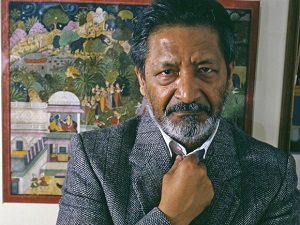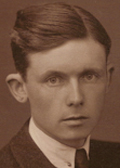De Britse schrijver Sir Vidiadhar Surajprasad Naipaul werd geboren op 17 augustus 1932 in Chaguanas, Trinidad en Tobago. Zie ook alle tags voor V. S. Naipaul op dit blog en ook mijn blog van 17 augustus 2010.
Uit: A Bend In the River
“At certain times in some civilizations great leaders can bring out the manhood in the people they lead. It is different with slaves. Don’t blame the leaders. It is just part of the dreadfulness of the situation. It is better to withdraw from the whole business, if you can. And I could. You may say — and I know, Salim, that you have thought it — that I have turned my back on my community and sold out. I day: ‘Sold out to what and from what? What do you have to offer me? What is your own contribution? And can you give me back my manhood?’ Anyway, that was what I decided that morning, beside the river of London, between the dolphins and the camels, the work of some dead artist who had been adding to the beauty of their city.
“That was five years ago. I often wonder what would have happened to me if I hadn’t made that decision. I suppose I would have sunk. I suppose I would have found some kind of hole and tried to hide or pass. After all, we make ourselves according to the ideas we have of our possibilities. I would have hidden in my hole and been crippled by my sentimentality, doing what I doing, and doing it well, but always looking for the wailing wall. And I would never have seen the world as the rich place that it is. You wouldn’t have seen me here in Africa , doing what I do. I wouldn’t have wanted to do it, and no one would have wanted me to do it. I would have said: ‘It’s all over for me, so why should I let myself be used by anybody? The Americans want to win the world. It’s their fight, not mine.’ And that would have been stupid. It is stupid to talk of the Americans. They are not a tribe, as you might think from the outside. They’re all individuals fighting to make their way, trying as hard as you or me not to sink.
“It wasn’t easy after I left the university. I still had to get a job, and the only thing I knew now was what I didn’t want to do. I didn’t want to exchange one prison for another. People like me have to make their own jobs. It isn’t something that’s going to come to you in a brown envelope. The job is there, waiting. But it doesn’t exist for you or anyone else until you discover it, and you discover it because it’s for you and you alone.”

V. S. Naipaul (Chaganuas, 17 augustus 1932)


